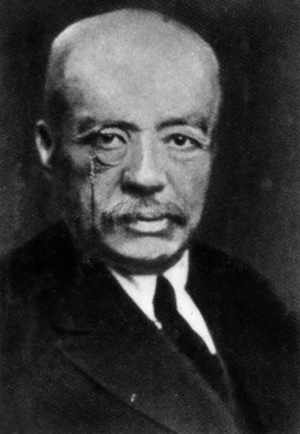Gunnar Heiberg facts for kids
Quick facts for kids
Gunnar Heiberg
|
|
|---|---|

Heiberg, c. 1928
|
|
| Born | 18 November 1857 Christiania, Norway |
| Died | 22 February 1929 (aged 71) Oslo, Norway |
| Resting place | Vestre gravlund |
| Period | 1884–1929 |
| Spouse |
Didrikke Heiberg
(m. 1885; div. 1896)Birgit Friis Stoltz Blehr
(m. 1911) |
Gunnar Edvard Rode Heiberg (born November 18, 1857, died February 22, 1929) was an important Norwegian writer. He was known as a poet, a writer of plays (playwright), a journalist, and someone who reviewed plays (theatre critic).
Contents
Early Life and Family
Gunnar Heiberg was born in Christiania, which is now Oslo, Norway. His father was Edvard Omsen Heiberg, who was a judge. His mother was Minna Rode.
Gunnar had three brothers named Jacob, Anton, and Inge. He was married twice. His first wife was actress Didrikke Tollefsen. They were married from 1885 to 1896. In 1911, he married Birgit Friis Stoltz Blehr.
His Writing Career
Gunnar Heiberg finished his schooling in 1874. He then began studying law, but he was more interested in writing. He became friends with Gerhard Gran, a writer, and was influenced by thinkers like Charles Darwin and Georg Brandes.
Heiberg started as a poet in 1878. That same year, he traveled to Rome and met famous writers like Henrik Ibsen. His first play, Tante Ulrikke, was written in 1877 but was not performed until 1901. His first play to be shown on stage was Kong Midas in 1890, in Copenhagen.
Journalism and Theatre Work
Heiberg also worked as a journalist. He wrote for the newspaper Dagbladet from 1880 to 1882. Later, he worked for Verdens Gang from 1896 to 1903. He was also their reporter in Paris from 1897 to 1901.
From 1884 to 1888, Heiberg was the artistic director for the theatre Den Nationale Scene in Bergen. He left this job because the theatre would not perform a play by Bjørnstjerne Bjørnson. His most famous plays are Balkonen (The Balcony, 1894) and Kjærlighedens Tragedie (The Tragedy of Love, 1904).
Views on Norwegian Independence
Gunnar Heiberg was very passionate about Norway being an independent country. At the time, Norway was in a union with Sweden, and the Swedish King, Oscar II, was also the King of Norway.
In 1896, Heiberg wrote a book called Hs. Majestæt. This book was very critical of King Oscar II. The publishing company was worried about legal problems, so they did not put their name on the book. Most copies of the book were destroyed to avoid trouble.
Supporting Norway's Freedom
In 1905, Heiberg strongly supported the idea of Norway becoming fully independent from Sweden. At the premiere of his play Kjærlighedens Tragedie, he gave a speech. He said that Norway and Sweden could not continue to be united peacefully. He believed Norway should be a free and independent state.
Heiberg admired Georg Stang, a former Minister of Defence. Stang had worked to build defenses along the border with Sweden. After his speech, Heiberg toasted Stang and told him, "I love you."
Norway did become independent in 1905. However, Heiberg was not happy with all the terms of the agreement, called the Karlstad Treaty. He thought the terms were "humiliating." One reason was that Norway agreed to remove its border defenses. Heiberg believed that "an honourable war is far less dank and sickening than a dishonourable peace."
Heiberg also wanted Norway to be a republic, meaning it would not have a king. But after the union ended, Norway chose to have its own king. In 1912, Heiberg wrote a play called Jeg vil værge mit land (I will defend my country). This play criticized Christian Michelsen, who helped dissolve the union but supported having a monarchy.
In 1923, Gunnar Heiberg began receiving a grant from the state for his writing. He passed away in November 1929 in Oslo and is buried at Vestre gravlund.
See also
 In Spanish: Gunnar Heiberg para niños
In Spanish: Gunnar Heiberg para niños
 | Leon Lynch |
 | Milton P. Webster |
 | Ferdinand Smith |

